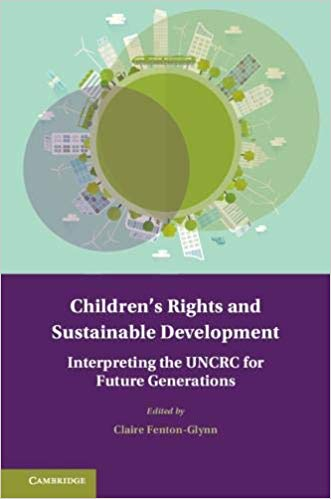 Cambridge University Press has published Children's Rights and Sustainable Development edited by Dr Claire Fenton-Glynn.
Cambridge University Press has published Children's Rights and Sustainable Development edited by Dr Claire Fenton-Glynn.
This volume, edited by Claire Fenton-Glynn, considers how to implement children’s rights in the 21st century through a child rights-based approach to sustainable development. Bringing together authors from six countries, and across the fields of law, economics, early childhood education, and development studies, it provides an important reference work for academics, practitioners and civil society.
Children often fare the worst when communities face social and environmental changes – the quality of food, water, affection and education that children receive can have impacts on their subsequent lives and their potential to become engaged and productive citizens. At the same time, children often lack both a private and public voice, and are powerless against government and private decision-making. In taking a child rights-based approach to sustainable development, this book defines and identifies children as the subjects of development, and explores how their rights can be respected, protected and promoted while also ensuring the economic, social and environmental sustainability of our planet.
In her review of the volume, Marie-Claire Cordonier Segger (University of Waterloo and University of Cambridge) stated:
"Dr Claire Fenton-Glynn's brilliant edited collection links children's rights to the world's crucial Sustainable Development Goals (SDGs) through rigorous analysis, led by inspiring vision. This volume offers lawyers, legal scholars and policy leaders a coherent and carefully researched series of outstanding expert perspectives from rapidly advancing law and policy on sustainable development, while the pressing challenges and insights for the protection of the most vulnerable, our children and our future, secure its worth for all our libraries."
The book is available to users on the Cambridge network via the CUP Core.
For more information about this book, please refer to the CUP website. For information about other publications by Dr Fenton-Glynn, see her Faculty profile.


 Twitter
Twitter Email
Email